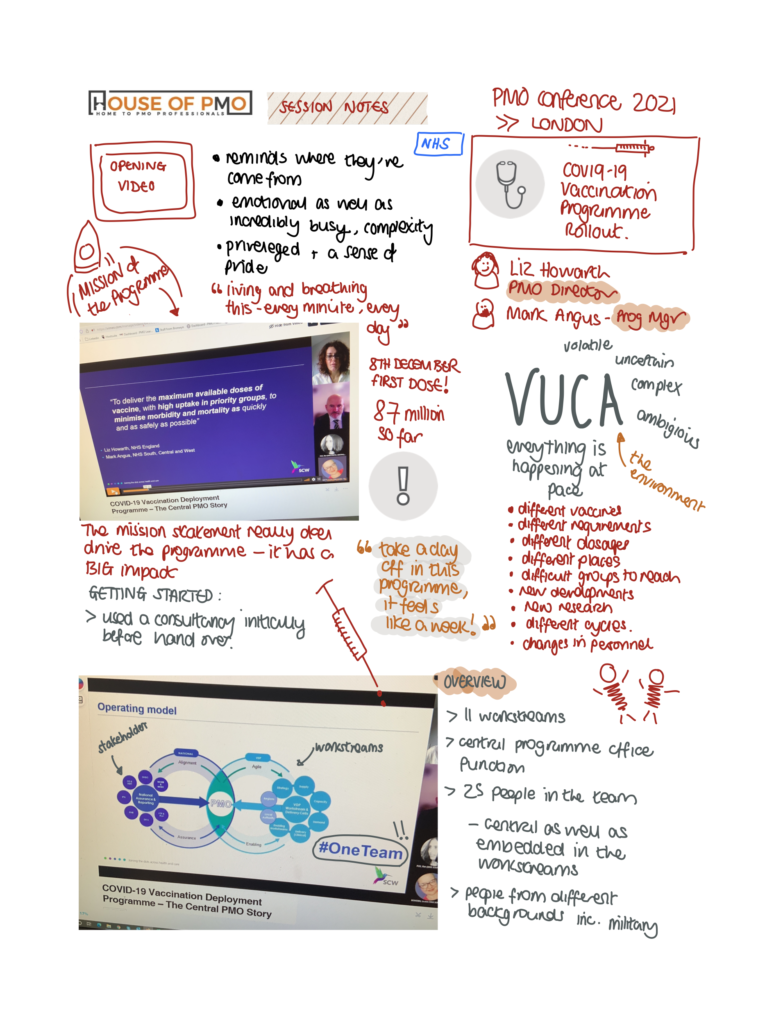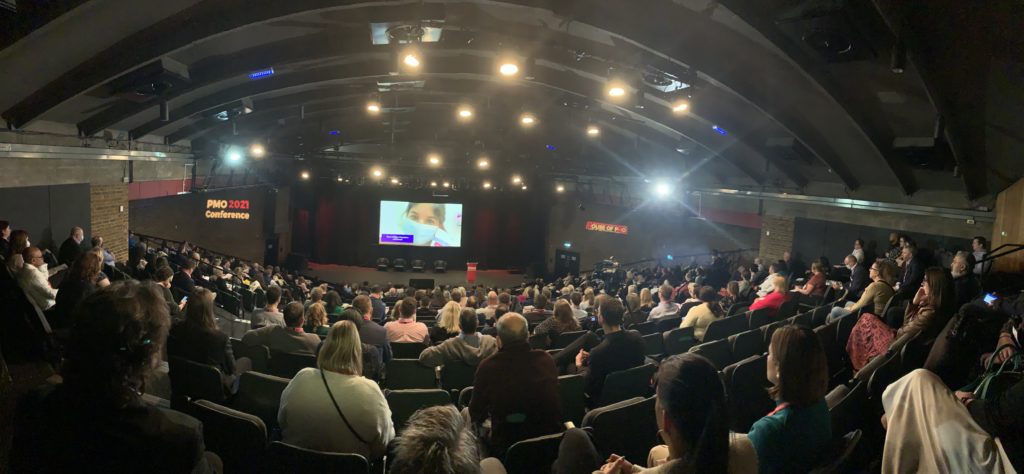Watch back all our PMO Conference sessions
PMO Conference 2021 \\ COVID-19 Vaccination Deployment Programme – Liz Howarth & Mark Angus
Session Recording
![]()
COVID-19 Vaccination Deployment Programme – Liz Howarth & Mark Angus
Synopsis
Perhaps one of the hardest working PMO teams of the last 18 months, we kick off the PMO Conference 2021 with an inspirational story. How did the PMO manage to come together to build the wings whilst the plane was flying to support the delivery of the first vaccination in December 2020 and the subsequent millions of vaccinations since?
What were the priorities; what were the challenges and the triumphs? What was the technical response of the PMO and how did they support the people and cultural side of such a high profile deployment. How did they fair personally and emotionally – keeping pace with the ups and downs – and what do they think about their part in such a historical event.
We hear from two of the central PMO team from the COVID-19 Vaccination Deployment Programme.
Top Ten Takeaways
There was a lot in this session we loved, here are just ten of them:

Having a mission or vision for a programme is crucial for bringing people together and keeping everyone on track. They are difficult to come up with but for this programme, they were “living and breathing this, every minute and every day”, pretty powerful stuff!

The PMO team had 25 people within it – from different backgrounds and different skill levels. They used a central PMO plus had PMO practitioners working in each of the 11 workstreams – together they could make sure that there were tight controls, effective systems in place yet still having the flexibility needed to work in a constantly moving beast.

There were staff with a military background that proved crucial – providing a different language and a different approach to things like problem-solving and well-being. A great quote “don’t forget sleep is a weapon” and practices such as taking risks together and no-regrets decision making.

There were a lot of meetings – providing a meeting cadence – each morning, afternoon and last thing in the day. The PMO really came into its own supporting the sheer amount of meetings with multiple stakeholders both nationally and locally. Don’t let anyone say that secretariat support from the PMO isn’t needed!

The PMO leader becomes a jungle guide – learning to understand the terrain, removing the blockers in the path, looking for the tracks through and looking for the direction in which to go.

Critical paths on a page – working at pace in a complex and constantly changing environment meant the PMO had to be on the ball with the planning – and making it simple and on one page.

The PMO getting involved in the programme itself – not just supporting it but actually using their expertise to run a project themselves – check out that ‘grab a jab’ work they did in 8 days and try telling us the PMO can’t run projects too.

“What do you need to be awesome today?” might be cheesy but it did the trick – looking after each other was crucial in helping them go the distance.

No one was allowed to struggle or fail on the project because it was a #oneteam approach which included lots of regular discussions and check-in points where wellbeing was paramount – they also kept a check on capacity planning and swapping resources out, bringing new people in to prevent burnout.

A programme like this might be a once in a lifetime experience but it has taught everyone that anything is possible when traditional red tape barriers in public sector projects can be unlocked quickly – they intend to keep many of the practices and approaches they’ve learnt for future work in the healthcare sector.
Our Notes
Have a browse through our four pages of notes and see what stands out for you:


